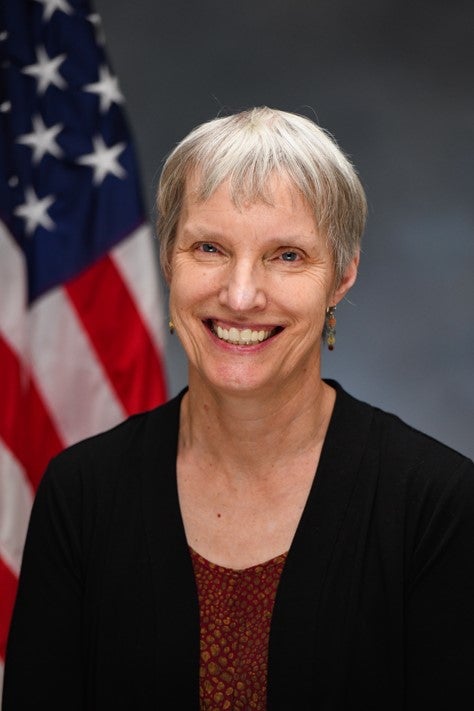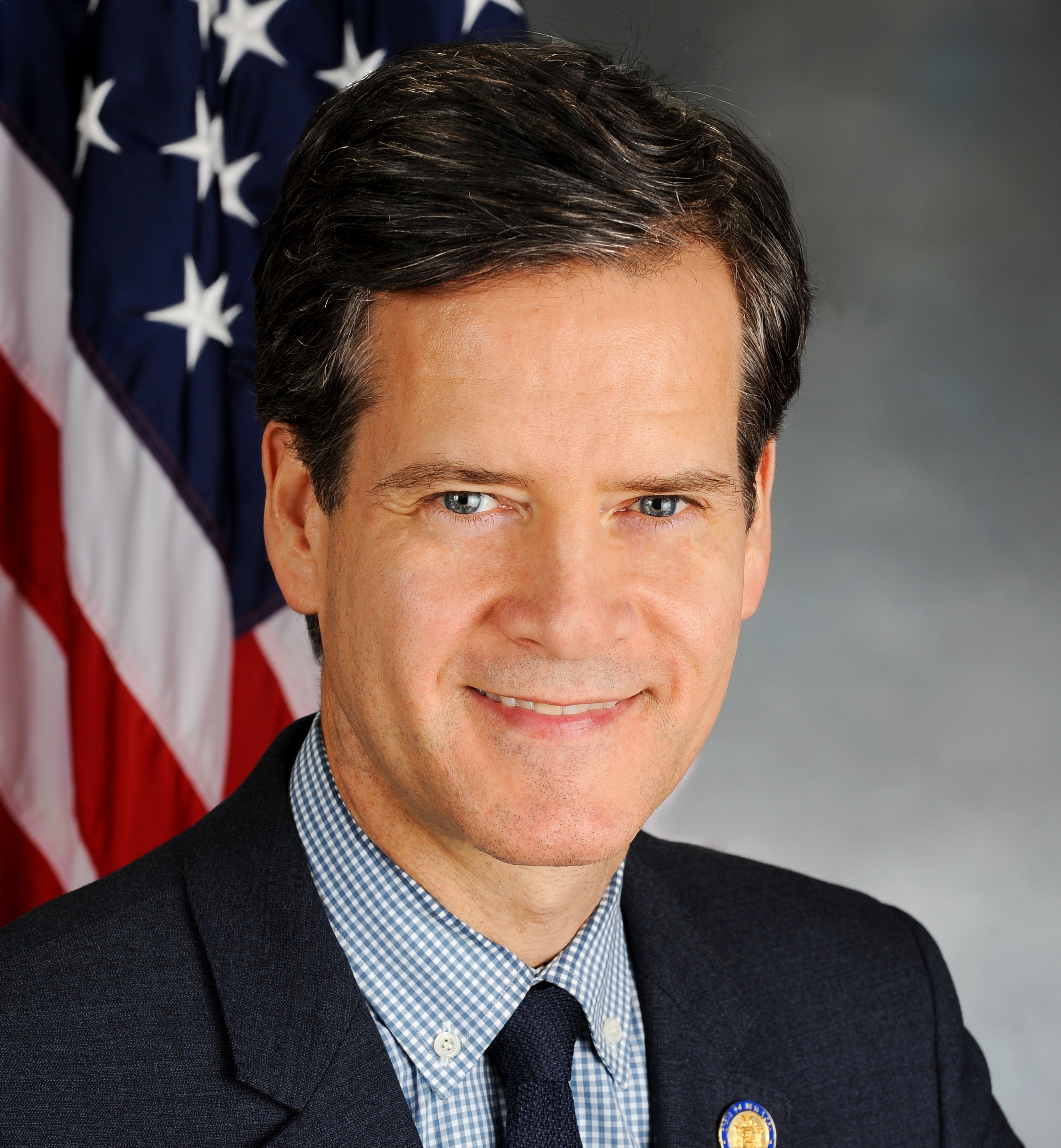[ ] is old law to be omitted.
LBD03654-09-2
S. 933--B 2
contracts or agreements of multiple parties to do the same and should be
treated similarly under the law. After monopolies or monopsonies have
been established, it is typically too late to repair or mitigate the
damage which has been done. Accordingly, mere attempts to create monopo-
lies or monopsonies through anti-competitive conduct should also be
treated as actions contrary to the interests of the people of the state
of New York and should be penalized accordingly. The legislature
further finds and declares that effective enforcement against unilateral
anti-competitive conduct has been impeded by courts, for example, apply-
ing narrow definitions of monopolies and monopolization, limiting the
scope of unilateral conduct covered by the federal anti-trust laws, and
unreasonably heightening the legal standards that plaintiffs and govern-
ment enforcers must overcome to establish violations of those laws. The
legislature further finds and declares that one of the purposes of the
state's anti-trust laws is to ensure that our labor markets are open and
fair. The legislature further finds and declares that anti-competitive
practices harm great numbers of citizens and therefore must ensure that
class actions may be raised in anti-trust suits.
§ 3. Section 340 of the general business law, as amended by chapter 12
of the laws of 1935, subdivision 1 as amended by chapter 893 of the laws
of 1957, subdivision 2 as amended by chapter 805 of the laws of 1984,
subdivisions 3 and 4 as renumbered by chapter 502 of the laws of 1948,
subdivision 5 as amended by chapter 333 of the laws of 1975 and subdivi-
sion 6 as amended by chapter 31 of the laws of 1999, is amended to read
as follows:
§ 340. Contracts or agreements for monopoly, MONOPSONY, or in
restraint of trade illegal and void. 1. Every contract, agreement,
arrangement or combination whereby
A monopoly OR MONOPSONY in the conduct of any business, trade or
commerce or in the furnishing of any service in this state, is or may be
established or maintained, or whereby
Competition or the free exercise of any activity in the conduct of any
business, trade or commerce or in the furnishing of any service in this
state is or may be restrained or whereby
For the purpose of establishing or maintaining any such monopoly,
MONOPSONY, or unlawfully interfering with the free exercise of any
activity in the conduct of any business, trade or commerce or in the
furnishing of any service in this state any business, trade or commerce
or the furnishing of any service is or may be restrained, is hereby
declared to be against public policy, illegal and void.
2. (A) IT SHALL BE UNLAWFUL FOR ANY PERSON OR PERSONS TO MONOPOLIZE OR
MONOPSONIZE, OR ATTEMPT TO MONOPOLIZE OR MONOPSONIZE, OR COMBINE OR
CONSPIRE WITH ANY OTHER PERSON OR PERSONS TO MONOPOLIZE OR MONOPSONIZE
ANY BUSINESS, TRADE OR COMMERCE OR THE FURNISHING OF ANY SERVICE IN THIS
STATE.
(B) IT SHALL BE UNLAWFUL FOR ANY PERSON OR PERSONS WITH A DOMINANT
POSITION IN THE CONDUCT OF ANY BUSINESS, TRADE OR COMMERCE, IN ANY LABOR
MARKET, OR IN THE FURNISHING OF ANY SERVICE IN THIS STATE TO ABUSE THAT
DOMINANT POSITION.
(I) IN ANY ACTION BROUGHT UNDER THIS PARAGRAPH, A PERSON'S DOMINANT
POSITION MAY BE ESTABLISHED BY DIRECT EVIDENCE, INDIRECT EVIDENCE, OR A
COMBINATION OF THE TWO.
(1) EXAMPLES OF DIRECT EVIDENCE INCLUDE, BUT ARE NOT LIMITED TO, THE
UNILATERAL POWER TO SET PRICES, TERMS, CONDITIONS, OR STANDARDS; THE
UNILATERAL POWER TO DICTATE NON-PRICE CONTRACTUAL TERMS WITHOUT COMPEN-
SATION; OR OTHER EVIDENCE THAT A PERSON IS NOT CONSTRAINED BY MEANINGFUL
S. 933--B 3
COMPETITIVE PRESSURES, SUCH AS THE ABILITY TO DEGRADE QUALITY WITHOUT
SUFFERING REDUCTION IN PROFITABILITY. IN LABOR MARKETS, EXAMPLES OF
DIRECT EVIDENCE INCLUDE, BUT ARE NOT LIMITED TO, THE USE OF NON-COMPETE
CLAUSES OR NO-POACH AGREEMENTS, OR THE UNILATERAL POWER TO SET WAGES.
(2) A PERSON'S DOMINANT POSITION MAY ALSO BE ESTABLISHED BY INDIRECT
EVIDENCE SUCH AS THE PERSON'S SHARE OF A RELEVANT MARKET. A PERSON WHO
HAS A SHARE OF FORTY PERCENT OR GREATER OF A RELEVANT MARKET AS A SELLER
SHALL BE PRESUMED TO HAVE A DOMINANT POSITION IN THAT MARKET UNDER THIS
PARAGRAPH. A PERSON WHO HAS A SHARE OF THIRTY PERCENT OR GREATER OF A
RELEVANT MARKET AS A BUYER SHALL BE PRESUMED TO HAVE A DOMINANT POSITION
IN THAT MARKET UNDER THIS PARAGRAPH.
(3) IF DIRECT EVIDENCE IS SUFFICIENT TO DEMONSTRATE THAT A PERSON HAS
A DOMINANT POSITION OR HAS ABUSED SUCH A DOMINANT POSITION, NO COURT
SHALL REQUIRE DEFINITION OF A RELEVANT MARKET IN ORDER TO EVALUATE THE
EVIDENCE, FIND LIABILITY, OR FIND THAT A CLAIM HAS BEEN STATED UNDER
THIS PARAGRAPH.
(II) IN ANY ACTION BROUGHT UNDER THIS PARAGRAPH, ABUSE OF A DOMINANT
POSITION MAY INCLUDE, BUT IS NOT LIMITED TO, CONDUCT THAT TENDS TO FORE-
CLOSE OR LIMIT THE ABILITY OR INCENTIVE OF ONE OR MORE ACTUAL OR POTEN-
TIAL COMPETITORS TO COMPETE, SUCH AS LEVERAGING A DOMINANT POSITION IN
ONE MARKET TO LIMIT COMPETITION IN A SEPARATE MARKET, OR REFUSING TO
DEAL WITH ANOTHER PERSON WITH THE EFFECT OF UNNECESSARILY EXCLUDING OR
HANDICAPPING ACTUAL OR POTENTIAL COMPETITORS. IN LABOR MARKETS, ABUSE
MAY INCLUDE, BUT IS NOT LIMITED TO, IMPOSING CONTRACTS BY WHICH ANY
PERSON IS RESTRAINED FROM ENGAGING IN A LAWFUL PROFESSION, TRADE, OR
BUSINESS OF ANY KIND, OR BY RESTRICTING THE FREEDOM OF WORKERS AND INDE-
PENDENT CONTRACTORS TO DISCLOSE WAGE AND BENEFIT INFORMATION.
(III) EVIDENCE OF PRO-COMPETITIVE EFFECTS SHALL NOT BE A DEFENSE TO
ABUSE OF DOMINANCE AND SHALL NOT OFFSET OR CURE COMPETITIVE HARM.
(C) (I) THE FOLLOWING CONDUCT IS PER SE ILLEGAL: THE USE OF NONCOMPETE
CLAUSES, RESTRICTIONS ON CLASS AND COLLECTIVE ACTIONS ASIDE FROM THOSE
PREREQUISITES LAID OUT IN ARTICLE NINE OF THE CIVIL PRACTICE LAW AND
RULES, AND NO-POACH AGREEMENTS. THE CONDUCT IS PER SE ILLEGAL WHETHER
THE AGREEMENT IS HORIZONTAL OR VERTICAL.
(II) ANY PERSON WHO VIOLATES THIS SECTION SHALL BE CIVILLY LIABLE TO A
COVERED EMPLOYEE OR INDEPENDENT CONTRACTOR FOR TREBLE DAMAGES, ATTOR-
NEY'S FEES, AND COSTS, OR ALTERNATIVELY, AT THE ELECTION OF THE COVERED
EMPLOYEE OR INDEPENDENT CONTRACTOR, STATUTORY DAMAGES OF TWO THOUSAND
FIVE HUNDRED DOLLARS PER VIOLATION, INCLUDING ATTORNEY'S FEES, AND
COSTS.
(D) (I) THE ATTORNEY GENERAL IS HEREBY EMPOWERED TO ADOPT, PROMULGATE,
AMEND, AND REPEAL RULES, AS SUCH TERM IS DEFINED IN PARAGRAPH (A) OF
SUBDIVISION TWO OF SECTION ONE HUNDRED TWO OF THE STATE ADMINISTRATIVE
PROCEDURE ACT, TO CARRY OUT THE PURPOSES OF PARAGRAPH (B) OF THIS SUBDI-
VISION, INCLUDING THOSE CONSIDERATIONS SPECIFIED IN THE FINDINGS AND
DECLARATIONS OF THE LEGISLATURE FOR THIS ACT.
(II) BEFORE ANY SUCH RULE SHALL TAKE EFFECT, AT SUCH TIME THAT THE
ATTORNEY GENERAL IS PREPARED TO FILE A NOTICE OF ADOPTION PURSUANT TO
SUBDIVISION FIVE OF SECTION TWO HUNDRED TWO OF THE STATE ADMINISTRATIVE
PROCEDURE ACT, THE ATTORNEY GENERAL SHALL TRANSMIT A COPY OF THE RULE IN
ITS FINAL FORM TO THE TEMPORARY PRESIDENT OF THE SENATE AND THE SPEAKER
OF THE ASSEMBLY AND, IN ADDITION, SHALL PROVIDE ANY RELEVANT INFORMATION
REGARDING THE NEED FOR SUCH RULE. SUCH PROPOSED RULE, OR PROPOSED REPEAL
OF A RULE, IS SUBJECT TO THE DENIAL BY BOTH HOUSES OF THE LEGISLATURE
AND SHALL TAKE THE FORM OF A RESOLUTION. EACH HOUSE OF THE LEGISLATURE
SHALL HAVE SIXTY DAYS FOLLOWING THE TRANSMISSION OF SUCH RULE TO ISSUE
S. 933--B 4
DENIAL BY RESOLUTION OR TAKE NO ACTION. SUCH RULE SHALL NOT TAKE EFFECT
IF BOTH HOUSES PASS A RESOLUTION DENYING SUCH PROPOSED RULE WITHIN THE
TIME PRESCRIBED BY THIS SUBPARAGRAPH.
(III) THE ATTORNEY GENERAL SHALL ISSUE GUIDANCE ON HOW IT WILL INTER-
PRET MARKET SHARES AND OTHER RELEVANT MARKET CONDITIONS TO ACHIEVE THE
PURPOSES OF PARAGRAPH (B) OF THIS SUBDIVISION WHILE TAKING INTO ACCOUNT
THE IMPORTANT ROLE OF SMALL AND MEDIUM-SIZED BUSINESSES IN THE STATE'S
ECONOMY. THE ATTORNEY GENERAL MAY ISSUE OTHER GUIDANCE WITH RESPECT TO
PARAGRAPH (B) OF THIS SUBDIVISION.
(IV) NOTHING IN THIS SECTION SHALL BE DEEMED TO DIMINISH THE JURISDIC-
TION OF THE PUBLIC SERVICE COMMISSION.
3. Subject to the exceptions hereinafter provided in this section, the
provisions of this article shall apply to licensed insurers, licensed
insurance agents, licensed insurance brokers, licensed independent
adjusters and other persons and organizations subject to the provisions
of the insurance law, to the extent not regulated by provisions of arti-
cle twenty-three of the insurance law; and further provided, that noth-
ing in this section shall apply to the marine insurances, including
marine protection and indemnity insurance and marine reinsurance,
exempted from the operation of article twenty-three of the insurance
law.
[3.] 4. The provisions of this article shall not apply to cooperative
associations, corporate or otherwise, of farmers, gardeners, or dairy-
men, including live stock farmers and fruit growers, nor to contracts,
agreements or arrangements made by such associations, nor to bona fide
labor unions, NOR TO THE CREATION, PRODUCTION, AND DISSEMINATION OF A
SINGLE EXPRESSIVE WORK THAT IS COPYRIGHTED, INCLUDING BUT NOT LIMITED
TO, A STREAMING SERIES, TELEVISION PROGRAMS AND OR MOTION PICTURES.
[4.] 5. The labor of human beings shall not be deemed or held to be a
commodity or article of commerce as such terms are used in this section
and nothing herein contained shall be deemed to prohibit or restrict the
right of workingmen, INCLUDING EMPLOYEES AND INDEPENDENT CONTRACTORS, to
combine in unions, organizations and associations, not organized for the
purpose of profit, TO ESTABLISH OR MAINTAIN UNION APPRENTICESHIP OR
TRAINING PROGRAMS THAT MAY LEAD TO ANY GOVERNMENT-ISSUED TRADE LICENSE,
OR TO BARGAIN COLLECTIVELY CONCERNING THEIR WAGES AND THE TERMS AND
CONDITIONS OF THEIR EMPLOYMENT. NOTHING IN THIS SECTION SHALL BE DEEMED
TO PREVENT OR CREATE LIABILITY WITH RESPECT TO ANY ACTIONS TO COMPLY
WITH ARTICLE EIGHT OR NINE OF THE LABOR LAW. A BONA FIDE COLLECTIVE
BARGAINING AGREEMENT, PROJECT LABOR AGREEMENT OR ANY OTHER AGREEMENT
LAWFUL UNDER 29 U.S.C. 158(F), AS AMENDED, OR ANY TERM THEREIN, SHALL
NOT BE CONSIDERED EVIDENCE OF A VIOLATION OR DOMINANCE UNDER THIS
SECTION. PROJECT LABOR AGREEMENT SHALL HAVE THE MEANING SPECIFIED IN
SECTION TWO HUNDRED TWENTY-TWO OF THE LABOR LAW.
[5.] 6. An action to recover damages caused by a violation of this
section must be commenced within four years after the cause of action
has accrued. The state, or any political subdivision or public authority
of the state, or any person who shall sustain damages by reason of any
violation of this section, shall recover three-fold the actual damages
sustained thereby, as well as costs not exceeding ten thousand dollars,
and reasonable attorneys' fees. At or before the commencement of any
civil action by a party other than the attorney-general for a violation
of this section, notice thereof shall be served upon the attorney-gener-
al. Where the aggrieved party is a political subdivision or public
authority of the state, notice of intention to commence an action under
this section must be served upon the attorney-general at least ten days
S. 933--B 5
prior to the commencement of such action. This section shall not apply
to any action commenced prior to the effective date of this act.
[6.] 7. In any action pursuant to this section, the fact that the
state, or any political subdivision or public authority of the state, or
any person who has sustained damages by reason of violation of this
section has not dealt directly with the defendant shall not bar or
otherwise limit recovery; provided, however, that in any action in which
claims are asserted against a defendant by both direct and indirect
purchasers, the court shall take all steps necessary to avoid duplicate
liability, including but not limited to the transfer and consolidation
of all related actions. In actions where both direct and indirect
purchasers are involved, a defendant shall be entitled to prove as a
partial or complete defense to a claim for damages that the illegal
overcharge has been passed on to others who are themselves entitled to
recover so as to avoid duplication of recovery of damages.
8. ANY DAMAGES RECOVERABLE PURSUANT TO THIS SECTION MAY BE RECOVERED
IN ANY ACTION WHICH A COURT MAY AUTHORIZE TO BE BROUGHT AS A CLASS
ACTION PURSUANT TO ARTICLE NINE OF THE CIVIL PRACTICE LAW AND RULES.
9. AN ARRANGEMENT, AS THIS TERM IS USED IN THIS ARTICLE, INCLUDES, BUT
IS NOT LIMITED TO, A CONTRACT, COMBINATION, AGREEMENT OR CONSPIRACY.
10. PREMERGER NOTIFICATION.
(A) ANY PERSON CONDUCTING BUSINESS IN THE STATE WHICH IS REQUIRED TO
FILE THE NOTIFICATION AND REPORT FORM FOR CERTAIN MERGERS AND ACQUISI-
TIONS PURSUANT TO THE HART-SCOTT-RODINO ANTITRUST IMPROVEMENTS ACT OF
1976, 15 U.S.C. S. 18A (A), SHALL PROVIDE THE SAME NOTICE AND DOCUMENTA-
TION IN ITS ENTIRETY TO THE ATTORNEY GENERAL AT THE SAME TIME THAT
NOTICE IS FILED WITH THE FEDERAL GOVERNMENT.
(B) THE FOLLOWING CLASSES OF TRANSACTIONS ARE EXEMPT FROM THE
REQUIREMENTS OF THIS SECTION:
(I) ACQUISITIONS OF GOODS OR REALTY TRANSFERRED IN THE ORDINARY COURSE
OF BUSINESS;
(II) THE CREATION, PRODUCTION, AND DISSEMINATION OF A SINGLE EXPRES-
SIVE WORK THAT IS COPYRIGHTED, INCLUDING BUT NOT LIMITED TO, A STREAMING
SERIES, TELEVISION PROGRAMS AND OR MOTION PICTURES;
(III) ACQUISITIONS OF BONDS, MORTGAGES, DEEDS OF TRUST, OR OTHER OBLI-
GATIONS WHICH ARE NOT VOTING SECURITIES;
(IV) TRANSFERS TO OR FROM A FEDERAL AGENCY OR A STATE OR POLITICAL
SUBDIVISION THEREOF;
(V) TRANSACTIONS SPECIFICALLY EXEMPTED FROM THE PROVISIONS OF THIS
ARTICLE; AND
(VI) SUCH OTHER ACQUISITIONS, TRANSFERS, OR TRANSACTIONS, AS MAY BE
EXEMPTED UNDER PARAGRAPH (F) OF THIS SUBDIVISION HEREUNDER.
(C) ANY INFORMATION OR DOCUMENTARY MATERIAL FILED WITH THE ATTORNEY
GENERAL PURSUANT TO THIS SUBDIVISION SHALL BE EXEMPT FROM DISCLOSURE
UNDER ARTICLE SIX OF THE PUBLIC OFFICERS LAW, AND NO SUCH INFORMATION OR
DOCUMENTARY MATERIAL MAY BE MADE PUBLIC, EXCEPT AS MAY BE RELEVANT TO
ANY ADMINISTRATIVE OR JUDICIAL ACTION OR PROCEEDING.
(D) ANY PERSON, OR ANY OFFICER, DIRECTOR, OR PARTNER THEREOF, WHO
FAILS TO COMPLY WITH ANY PROVISION OF THIS SUBDIVISION SHALL BE LIABLE
TO THE STATE FOR A CIVIL PENALTY OF NOT MORE THAN TEN THOUSAND DOLLARS
FOR EACH DAY DURING WHICH SUCH PERSON IS IN VIOLATION OF THIS SECTION.
SUCH PENALTY MAY BE RECOVERED IN A CIVIL ACTION BROUGHT BY THE ATTORNEY
GENERAL.
(E) IN CONSIDERING ANY TRANSACTION UNDER THIS SUBDIVISION, THE ATTOR-
NEY GENERAL SHALL CONSIDER SUCH TRANSACTION'S EFFECTS ON LABOR MARKETS.
(F) THE ATTORNEY GENERAL IS HEREBY EMPOWERED TO:
S. 933--B 6
(I) DEFINE THE TERMS USED IN THIS SUBDIVISION;
(II) EXEMPT, FROM THE REQUIREMENTS OF THIS SUBDIVISION, CLASSES OF
PERSONS, ACQUISITIONS, TRANSFERS, OR TRANSACTIONS WHICH ARE NOT LIKELY
TO VIOLATE THE PROVISIONS OF THIS ARTICLE; AND
(III) ADOPT, PROMULGATE, AMEND, AND RESCIND OTHER RULES AND REGU-
LATIONS TO CARRY OUT THE PURPOSES OF THIS SUBDIVISION.
§ 4. Section 341 of the general business law, as amended by chapter
333 of the laws of 1975, is amended to read as follows:
§ 341. Penalty. Every person or corporation, or any officer or agent
thereof, who shall [make or attempt to make or enter into any such
contract, agreement, arrangement or combination or who within this state
shall] do OR ATTEMPT TO DO, WITHIN THIS STATE, any act [pursuant there-
to] DECLARED UNLAWFUL UNDER SUBDIVISION ONE AND PARAGRAPH (A) OF SUBDI-
VISION TWO OF SECTION THREE HUNDRED FORTY OF THIS ARTICLE, or in, toward
or for the consummation thereof[, wherever the same may have been made],
is guilty of a class [E] D felony, and on conviction thereof shall, if a
natural person, be punished by a fine not exceeding one [hundred thou-
sand] MILLION dollars, or by imprisonment for not longer than four
years, or by both such fine and imprisonment; and if a corporation, by a
fine of not exceeding one HUNDRED million dollars. An indictment or
information based on a violation of any of the provisions of this
section must be found within [three] FIVE years after its commission. No
criminal proceeding barred by prior limitation shall be revived by this
act.
§ 5. Section 342-a of the general business law, as amended by chapter
275 of the laws of 1962, is amended to read as follows:
§ 342-a. Recovery of civil penalty by attorney-general. In lieu of any
penalty otherwise prescribed for a violation of a provision of this
article and in addition to an action pursuant to section three hundred
forty-two of this article, the attorney-general may bring an action in
the name and in behalf of the people of the state against any person,
trustee, director, manager or other officer or agent of a corporation,
or against a corporation, foreign or domestic, to recover a penalty in
the sum specified in section three hundred forty-one of this article for
the doing in this state of any act [herein] declared to be illegal IN
THIS ARTICLE, or any act in, toward or for the making or consummation of
any contract, agreement, arrangement or combination [herein] prohibited
BY THIS ARTICLE, wherever the same may have been made. The action must
be brought within [three] FIVE years after the commission of the act
upon which it is based.
§ 6. Section 342-b of the general business law, as amended by chapter
420 of the laws of 1975, is amended to read as follows:
§ 342-b. Recovery of damages by attorney general. In addition to
existing statutory AND COMMON LAW authority to bring such actions on
behalf of the state, [and] public authorities, AND RESIDENT PERSONS AND
ENTITIES, the attorney general may also bring action on behalf of any
political subdivision or public authority of the state upon the request
of such political subdivision or public authority, OR IN THE NAME OF THE
STATE, AS PARENS PATRIAE, ON BEHALF OF PERSONS AND OTHER ENTITIES RESID-
ING IN THE STATE OF NEW YORK, to recover damages for violations of
section three hundred forty of this article, or to recover damages
provided for by federal law for violations of the federal antitrust
laws. In any class action the attorney general may bring on behalf of
[these or other subordinate] governmental entities, any governmental
entity that does not affirmatively exclude itself from the action, upon
due notice thereof, shall be deemed to have requested to be treated as a
S. 933--B 7
member of the class represented in that action. The attorney general,
on behalf of the state of New York, shall be entitled to retain from any
moneys recovered in such actions the costs and expenses of such
services.
§ 7. The general business law is amended by adding a new section 342-d
to read as follows:
§ 342-D. RECOVERY OF EXPERT WITNESSES' FEES AND COSTS BY ATTORNEY-GEN-
ERAL AND PRIVATE LITIGANTS. IN ANY ACTION ALLEGING A VIOLATION OF A
PROVISION OF THIS ARTICLE, INCLUDING ACTIONS BROUGHT UNDER SUBDIVISION
TWELVE OF SECTION SIXTY-THREE OF THE EXECUTIVE LAW, THE ATTORNEY GENERAL
AND PRIVATE LITIGANTS SHALL RECOVER REASONABLE FEES AND COSTS FOR ITS
EXPERT WITNESSES AND CONSULTANTS IF THE ATTORNEY GENERAL OR PRIVATE
LITIGANTS PREVAIL IN SUCH ACTION.
§ 8. Severability. If any provision of this act, or the application
thereof to any person or circumstances, is held invalid or unconstitu-
tional, that invalidity or unconstitutionality shall not affect other
provisions or applications of this act that can be given effect without
the invalid or unconstitutional provision or application, and to this
end the provisions of this act are severable.
§ 9. This act shall take effect immediately.







